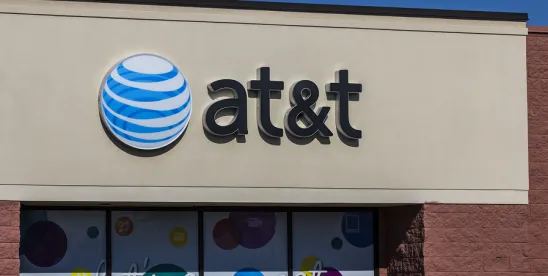The Seventh Circuit recently acted to limit the definition of “automatic telephone dialing system” (“ATDS”) under the Telephone Consumer Protection Act (“TCPA”). In Gadelhak v. AT&T Services, Inc., [1] the court ruled that a dialing system that “neither stores nor produces numbers using a random or sequential number generator,” but rather “exclusively dials numbers stored in a customer database,” “is not an ‘automatic telephone dialing system’ as defined by the Act.” In construing the definition of ATDS narrowly, the Seventh Circuit joined the interpretation adopted by the Third and Eleventh Circuits and rejected the Ninth Circuit’s differing interpretation.
ANALYSIS
In Gadelhak, the plaintiff asserted that the defendant impermissibly used an automatic telephone dialing system to text him without his prior express consent. The defendant had texted the plaintiff using a system that drew on a database containing the numbers of existing customers. The district court entered summary judgment for the defendant, ruling that the defendant’s system did not constitute an ATDS under the TCPA.
On appeal, the Seventh Circuit first concluded (as the Second and Ninth Circuits had done) [2] that receipt of unwanted text messages can constitute a concrete injury-in-fact for Article III standing purposes. The Seventh Circuit then proceeded to examine the statutory definition of an ATDS to determine whether the definition encompassed defendant’s system, concluding that it did not. [3]
The TCPA defines an “automatic telephone dialing system” as “equipment which has the capacity–(A) to store or produce telephone numbers to be called, using a random or sequential number generator; and (B) to dial such numbers.” [4] The defendant asserted that as a grammatical matter, the phrase “using a random or sequential number generator” modifies both the terms “store” and “produce.” The defendant then outlined how a different form of equipment from its system could store numbers using a random or sequential number generator such that the defendant’s interpretation would not render the term “store” mere surplusage. [5] Under the defendant’s interpretation, dialing systems that draw numbers from an existing database neither store nor produce numbers using a random or sequential number generator and thus cannot constitute an ATDS for TCPA purposes. [6]
After methodically considering the various grammatical interpretations of the definition of “automatic telephone dialing system,” the Seventh Circuit agreed with the defendant, rejecting the Ninth Circuit’s interpretation of ATDS urged by the plaintiff. [7] The Ninth Circuit had previously read the phrase “using a random or sequential number generator” as modifying only a system’s capacity to “produce” telephone numbers. [8] But the Seventh Circuit noted that such a broad interpretation would sweep into the definition of ATDS all equipment with the capacity to store and dial telephone numbers, including “[e]very iPhone today [which] has … capacity [to store telephone numbers and call or text them automatically] right out of the box.” [9] The Seventh Circuit found that this far-reaching result was well outside the intended plain-meaning of the statute.
The emerging trend narrowing the definition of an ATDS follows in the wake the D.C. Circuit’s 2018 decision rejecting the Federal Communications Commission’s broad definition of an ATDS. [10] The FCC issued notices in May and October 2018 inviting public comment concerning the interpretation of an ATDS but has yet to issue a revised definition.
CONCLUSION
The Seventh Circuit’s decision that a system which places calls using an existing database of numbers does not qualify as an ATDS will be of assistance to businesses operating within the Seventh Circuit in defending against TCPA lawsuits. And the split between the Third, Seventh, and Eleventh Circuits, on the one hand, and the Ninth Circuit, on the other, may eventually spur the Supreme Court to provide its own interpretation of the definition of ATDS.
NOTES
[1] — F.3d —, 2020 WL 808270, at *1 (7th Cir. Feb. 19, 2020).
[2] Melito v. Experian Mktg. Sols., Inc., 923 F.3d 85, 92-93 (2d Cir.); Van Patten v. Vertical Fitness Grp., LLC, 847 F.3d 1037, 1042-43 (9th Cir. 2017).
[3] Gadelhak, 2020 WL 808270, at *3.
[4] 47 U.S.C. § 227(a)(1).
[5] Gadelhak, 2020 WL 808270, at *4-5.
[6] Id. at *4.
[7] See Marks v. Crunch San Diego, LLC, 904 F.3d 1041, 1050 (9th Cir. 2018), cert. dismissed, 139 S. Ct. 1289, 203 L. Ed. 2d 300 (2019).
[8] See id.; Gadelhak, 2020 WL 808270, at *5-6. The Ninth Circuit was recently asked to reconsider the Marks decision to bring its interpretation of an ATDS under the TCPA into accord with the Third, Seventh, and Eleventh Circuits. See Lamkin v. Portfolio Recovery Assocs., No. 19-16947 (9th Cir.).
[9] Gadelhak, 2020 WL 808270, at *6.
[10] ACA Int’l v. FCC, 885 F.3d 687, 695 (D.C. Cir. 2018).






 />i
/>i
